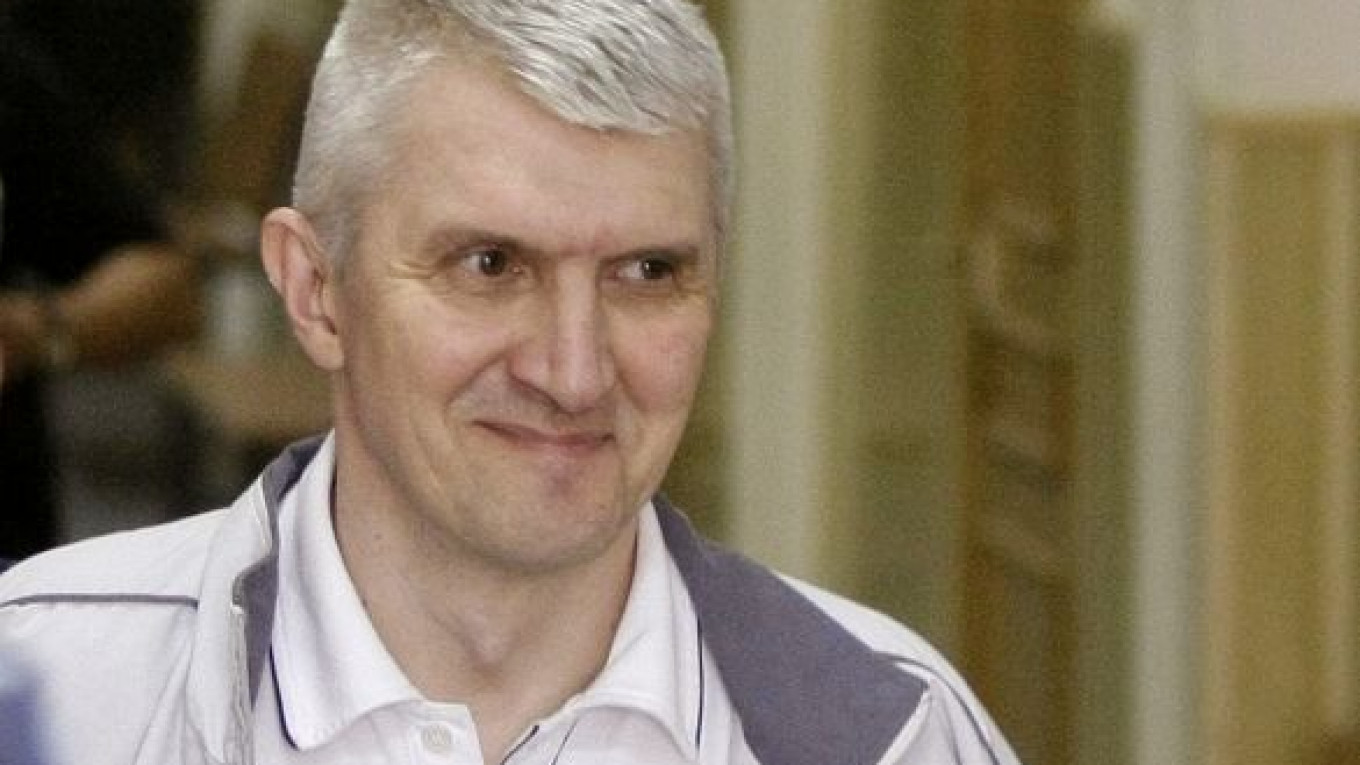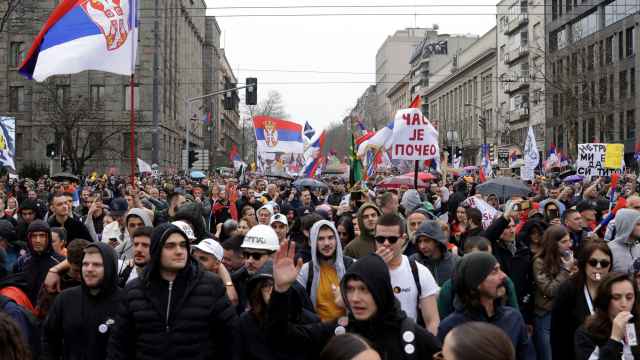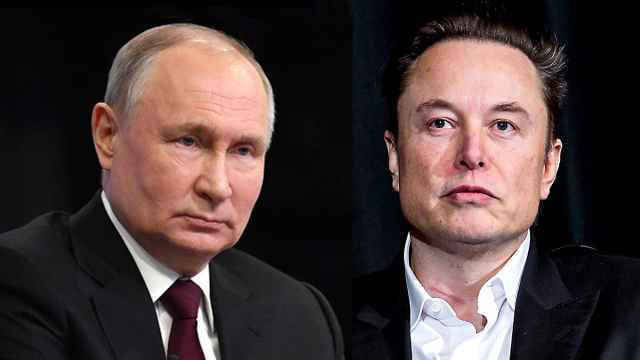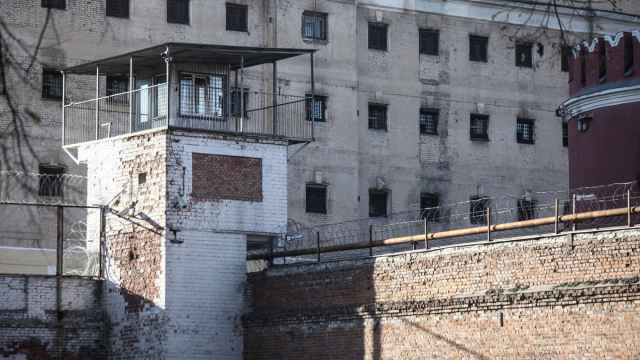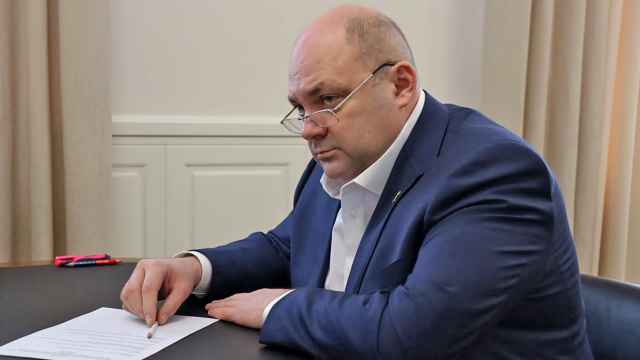Platon Lebedev, the one-time business partner of former Yukos owner Mikhail Khodorkovsky, walked free on Friday night from a penal colony in northwestern Russia, after serving more than ten years on economic charges that many viewed as politically motivated.
Lebedev's release came roughly a month after the pardon of Khodorkovsky, who also spent more than 10 years in prison, and is seen as part of President Vladimir Putin's publicity campaign to ease foreign criticism of Russia's human rights record ahead of the Winter Olympics in Sochi next month.
Lebedev left the penal colony in the town of Velsk in the Arkhangelsk region after the colony's officials received the original version of the Supreme Court ruling issued on Thursday, which reduced his 11-year term by several months. His associates immediately drove him to his home in the Moscow region by car.
In his first interview after release, which he gave to REN-TV television at home on Saturday, Lebedev announced plans to return to business but revealed few details.
"If my freedom of travel is not restricted … I will most likely do what I had been doing before," Lebedev told host Marianna Maximovskaya in a 10-minute video posted on the network's web site. A transcript of the video was posted on Khodorkovsky.ru.
Asked by Maximovskaya whether he meant business, Lebedev said, "Let's call it business," adding that "in our country, successful business is always politics" but that he was "not interested in politics per se."
"On the whole, I think I will surprise you after a certain time," he said.
Before his arrest in 2003, Lebedev served in Yukos' top management, and in the mid-90s he co-founded the bank Menatep with Khodorkovsky.
Unlike Khodorkovsky, who has said his financial standing will allow him not to have a paying job, Lebedev said he would probably have to work for a living. Apart from a tax debt to Russian authorities, Lebedev said he has amassed debts to his friends and relatives that he will have to pay back.
He may have been referring to nonfinancial debts as well — he mentioned that his younger daughter's age almost equaled the number of years he spent behind bars and that she had never seen him out of prison before Saturday.
Lebedev said he hoped to meet Khodorkovsky outside Russia in February, but his freedom to travel could be restricted after the Supreme Court on Thursday upheld a lower court ruling to levy 17 billion rubles ($491.2 million) in unpaid taxes from Khodorkovsky and Lebedev jointly, making them both debtors to the state.
Bailiffs are allowed to ban debtors from going abroad and arrest them until their debts are paid. Khodorkovsky, who traveled to Germany immediately after his release in a move orchestrated with the Kremlin, has cited that as a reason for not returning to Russia for the time being.
Khodorkovsky was one of the first people to call Lebedev after the latter was freed, Lebedev said.
"His voice was excited and trembling — he was not so much speaking but yelling," he said.
Lebedev said he needed a trip abroad for a medical examination as well, since the years he spent in prison had taken their toll.
Despite seemingly being full of plans, Lebedev was cautious about whether all of them could be fulfilled.
"I would put it this way: for now we have been released from the colony. At the very least, from their point of view of taking certain decisions in life, our hands are tied already," Lebedev said of himself and Khodorkovsky, without elaborating.
Lebedev and Khodorkovsky were arrested in 2003 and sentenced in two different trials in 2005 and 2010 to combined terms of 11 years in prison, which had been set to expire in August for Khodorkovsky and May for Lebedev.
Contact the author at n.krainova@imedia.ru
A Message from The Moscow Times:
Dear readers,
We are facing unprecedented challenges. Russia's Prosecutor General's Office has designated The Moscow Times as an "undesirable" organization, criminalizing our work and putting our staff at risk of prosecution. This follows our earlier unjust labeling as a "foreign agent."
These actions are direct attempts to silence independent journalism in Russia. The authorities claim our work "discredits the decisions of the Russian leadership." We see things differently: we strive to provide accurate, unbiased reporting on Russia.
We, the journalists of The Moscow Times, refuse to be silenced. But to continue our work, we need your help.
Your support, no matter how small, makes a world of difference. If you can, please support us monthly starting from just $2. It's quick to set up, and every contribution makes a significant impact.
By supporting The Moscow Times, you're defending open, independent journalism in the face of repression. Thank you for standing with us.
Remind me later.


